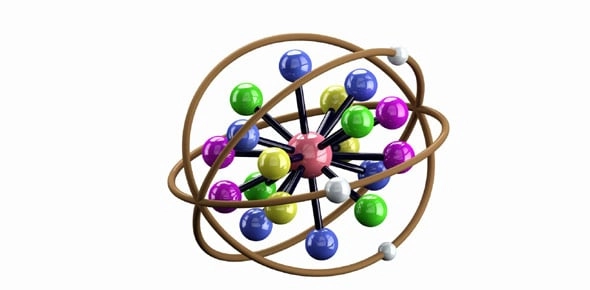
Dive into our quiz on ionic bonding of ionic compounds and discover how well you understand the fundamental forces that hold these essential materials together. Test your chemistry knowledge now!
Questions and Answers
What's inside the How Well Do You Understand Ionic Bonding in Compounds? quiz
What is the primary force that holds ionic compounds together?
Which of the following is a characteristic property of ionic compounds?
In an ionic bond, electrons are:
Which elements typically form ionic bonds?
What type of lattice structure is typical for ionic compounds?
Which property increases as the ionic bond strength increases?
Which statement best describes the solubility of ionic compounds in water?
What is the name of the compound Na₂O?
Which of the following best explains why ionic compounds are solid at room temperature?
What happens to the electrons in an ionic bond?
Quiz description
Understanding Ionic Bonding in Ionic Compounds
Ionic bonding is a fundamental concept in chemistry that explains how atoms combine to form compounds. This bond occurs through the electrostatic attraction between positively charged ions (cations) and negatively charged ions (anions). Typically, metals lose electrons to become cations, while nonmetals gain electrons to become anions.
Characteristics of Ionic Compounds
- High Melting and Boiling Points: Ionic compounds generally have high melting and boiling points due to the strong forces between ions.
- Electrical Conductivity: In molten or dissolved states, ionic compounds conduct electricity as ions are free to move.
- Crystal Lattice Structure: They form a distinct crystalline structure, which contributes to their hardness and brittleness.
Formation of Ionic Bonds
The formation of an ionic bond involves the transfer of electrons from one atom to another. For example, sodium (Na) can lose an electron to become Na⁺, while chlorine (Cl) can gain an electron to become Cl⁻. The resulting Na⁺ and Cl⁻ ions attract each other, forming sodium chloride (NaCl), a classic ionic compound.
Importance in Everyday Life
Ionic compounds play a critical role in various aspects of daily life, including nutrition, where salts like sodium chloride are essential for bodily functions. Additionally, they are used in a myriad of industrial applications, from manufacturing materials to serving as electrolytes in batteries.
Conclusion
Understanding ionic bonding provides valuable insights into the behavior and properties of a wide range of compounds. Whether you're a student exploring chemistry or someone curious about the materials that make up our world, grasping the principles of ionic bonding is essential.











